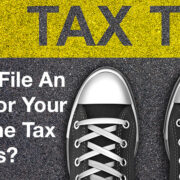Biden Signs Marijuana Research Bill Into Law – If You Can’t Beat Them, Join Them!
The Medical Marijuana and Cannabidiol Research Expansion Act is the first standalone federal marijuana reform law enacted since the adoption of the Controlled Substances Act in 1971.
The Act was signed into law by President Joe Biden on December 2, 2022. It had passed the House of Representatives in July 2022 by a strong bipartisan vote of 325-95 under the leadership of Representatives Earl Blumenauer (D-Ore.) and Andy Harris (R-Md.) – is to facilitate research on marijuana and its potential health benefits. The Act will accomplish this by streamlining the application process for scientific marijuana studies and removing existing barriers for researchers that frequently slow the research process. The Act also requires the Department of Health and Human Services and the National Institutes of Health to submit a report to Congress on the potential harms and benefits of marijuana use.
Cannabis Caucus Co-Chairs Earl Blumenauer (D-OR), Barbara Lee (D-CA), Dave Joyce (R-OH), and Brian Mast (R-FL) released the following statement in celebration of President Biden’s signing of the Medical Marijuana and Cannabidiol Research Expansion Act:
“For decades, the federal government has stood in the way of science and progress—peddling a misguided and discriminatory approach to cannabis. Today marks a monumental step in remedying our federal cannabis laws. The Medical Marijuana and Cannabidiol Research Expansion Act will make it easier to study the impacts and potential of cannabis.
“Research is foundational for the path forward on cannabis policy. Research is essential to better understand the therapeutic benefits of cannabis that have the potential to help millions of Americans struggling with chronic pain, PTSD, multiple sclerosis, anxiety disorders and more.
“We celebrate the enactment of this critical and long-overdue legislation, and we know there is much more to do to remedy the ongoing harms of the failed war on drugs. Our caucus will continue working to reimagine the federal government’s approach to cannabis and enact further reforms. In the coming weeks, we are committed to passing subsequent bipartisan, common-sense proposals like the SAFE Banking package, the Veterans Equal Access Act, the PREPARE Act, and the Veterans Medical Marijuana Safe Harbor Act.”
This is the first new law enacted by the Federal government favoring cannabis since President Joe Biden’s statement on October 6, 2022 promising marijuana reform.
The Growing Trend In Legalizing Cannabis:
Medical marijuana is legal in 37 states.
The medical use of cannabis is legal (with a doctor’s recommendation) in 37 states and Washington DC. Those 37 states being Alabama, Alaska, Arizona, Arkansas, California, Colorado, Connecticut, Delaware, Florida, Hawaii, Illinois, Louisiana, Maine, Maryland, Massachusetts, Michigan, Minnesota, Mississippi, Missouri, Montana, Nevada, New Hampshire, New Jersey, New Mexico, New York, North Dakota, Ohio, Oklahoma, Oregon, Pennsylvania, Rhode Island, South Dakota, Utah, Vermont, Virginia, Washington and West Virginia. The medical use of cannabis is also legal in the territories of the Northern Mariana Islands, Guam and Puerto Rico.
Recreational marijuana is legal in 21 states.
Twenty-one states and Washington DC, have legalized marijuana for recreational use — no doctor’s letter required — for adults over the age of 21. Those 21 states being Alaska, Arizona, California, Colorado, Connecticut, Illinois, Maine, Maryland, Massachusetts, Michigan, Missouri, Montana, Nevada, New Jersey, New Mexico, New York, Oregon, Rhode Island, Vermont, Virginia and Washington and the territories of the Northern Mariana Islands and Guam.
Recreational marijuana is legal in 6 tribal nations.
Six Tribal nations have legalized marijuana for recreational use. Those 6 tribes being the Flandreau Santee Sioux Tribe (South Dakota), Oglala Lakota Sioux Tribe (South Dakota), Suquamish Tribe (Washington state), Squaxin Island Tribe (Washington State), Eastern Band of Cherokee Indians (North Carolina) and St. Regis Mohawk Tribe (New York).
Conflict With Federal Law.
Under Federal law (Controlled Substances Act 21 U.S.C. 801) marijuana is designated as a Schedule I controlled substance due to the historical belief that it has a high potential for abuse, no currently accepted medical use in treatment, and lack of accepted safety for use under medical supervision. Cannabis containing more than 0.3 percent delta-9 tetrahydrocannabinol (commonly known as THC) is currently classified as a Schedule I drug. As a result, medical research is subject to stringent regulations that has impeded progress.
Higher Taxes Still Remain
While the developments listed above are favorable for cannabis business, it still remains to be seen whether the Federal government will respond favorably and when favorable changes will be made to the Internal Revenue Code which treats businesses in the marijuana industry differently resulting in such business paying at least 3-times as much in taxes as ordinary businesses.
Generally, businesses can deduct ordinary and necessary business expenses under I.R.C. §162. This includes wages, rent, supplies, etc. However, in 1982 Congress added I.R.C. §280E. Under §280E, taxpayers cannot deduct any amount for a trade or business where the trade or business consists of trafficking in controlled substances…which is prohibited by Federal law. Marijuana, including medical marijuana, is a controlled substance. What this means is that dispensaries and other businesses trafficking in marijuana have to report all of their income and cannot deduct rent, wages, and other expenses, making their marginal tax rate substantially higher than most other businesses.
Reporting Of Cash Payments Still Remain
The Bank Secrecy Act of 1970 (“BSA”) requires financial institutions in the United States to assist U.S. government agencies to detect and prevent money laundering. Specifically, the act requires financial institutions to keep records of cash purchases of negotiable instruments, and file reports of cash purchases of these negotiable instruments of more than $10,000 (daily aggregate amount), and to report suspicious activity that might signify money laundering, tax evasion, or other criminal activities. The BSA requires any business receiving one or more related cash payments totaling more than $10,000 to file IRS Form 8300, Report of Cash Payments Over $10,000 Received in a Trade or Business.
The minimum penalty for failing to file EACH Form 8300 is $25,000 if the failure is due to an intentional or willful disregard of the cash reporting requirements. Penalties may also be imposed for causing, or attempting to cause, a trade or business to fail to file a required report; for causing, or attempting to cause, a trade or business to file a required report containing a material omission or misstatement of fact; or for structuring, or attempting to structure, transactions to avoid the reporting requirements. These violations may also be subject to criminal prosecution which, upon conviction, may result in imprisonment of up to 5 years or fines of up to $250,000 for individuals and $500,000 for corporations or both.
Marijuana-related businesses operate in an environment of cash transactions as many banks remain reluctant to do business with many in the marijuana industry. Like any cash-based business the IRS scrutinizes the amount of gross receipts to report and it is harder to prove to the IRS expenses paid in cash. So it is of most importance that the proper facilities and procedures be set up to maintain an adequate system of books and records.
How Do You Know Which Cannabis Tax Attorney Is Best For You?
While the Federal government has legalize the research of cannabis, it is still otherwise illegal under existing Federal law you need to protect yourself and your marijuana business from all challenges created by the U.S. government. While cannabis is legal in California, that is not enough to protect you. It’s coming down that the biggest risk is TAXES. So it is best to be proactive and engage an experienced cannabis tax attorney in your area who is highly skilled in the different legal and tax issues that cannabis businesses face. Let the cannabis tax attorneys of the Law Offices Of Jeffrey B. Kahn, P.C. located in Orange County (Irvine), the Inland Empire (Ontario and Palm Springs) and other California locations protect you and maximize your net profits. And if you are involved in crypto currency, check out what a bitcoin tax attorney can do for you.











 Follow
Follow Follow
Follow